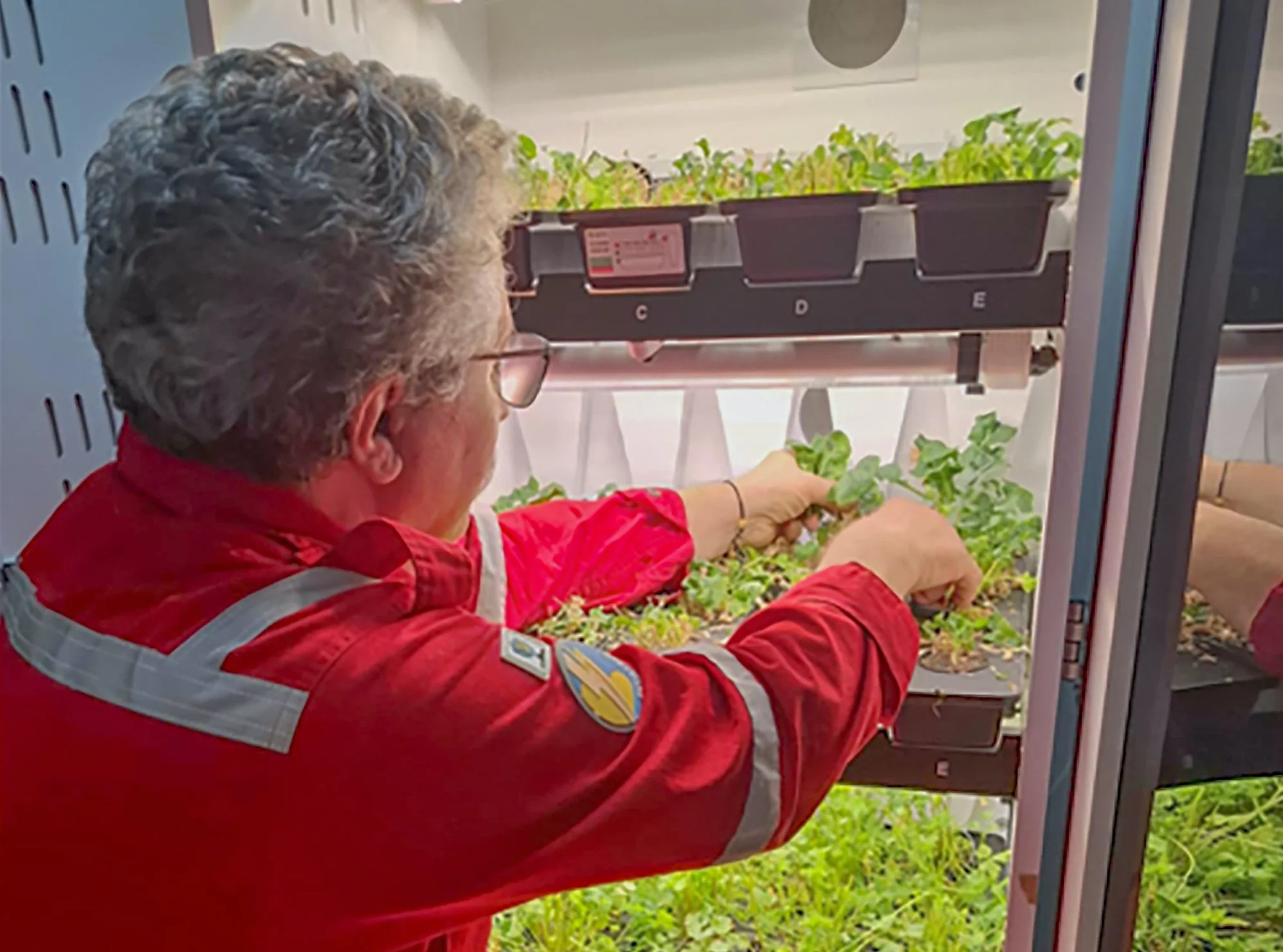Agwa introduces flexible pricing model to meet growing demand and reduce CAPEX barriers
Agwa, the maritime agritech company transforming crew welfare through AI-powered onboard vegetable growing systems, has introduced a new pricing model tailored to the financial and operational needs of market segments that are more CAPEX-sensitive and prefer ongoing OPEX, such as maritime catering companies and large fleet operators.
Developed in direct response to market demand, the additional pricing option allows operators to purchase 50 or more Agwa units with a significantly reduced upfront payment. Instead, a monthly fee covers both the device and growing pods, with pricing dependant on the length of commitment, which ranges from two to five years.
This structure shifts costs from large upfront capital to predictable operational expenditure, aligning with existing budget cycles and commercial models. By offering more flexible adoption pathways, the new pricing model enables broader access to Agwa’s device for crew members across a greater diversity of vessel types and operational profiles.
Agwa’s solution is already being used by nearly 20 leading shipping companies, including Maersk, Eastern Pacific Shipping, Synergy Marine, CoolCo, Capital Ship Management, and Angelakos. Strong interest from catering companies, along with consistently positive feedback from vessel managers and crew, has been a key driver behind the development of the new pricing model. Seafarers routinely describe harvesting fresh vegetables as the highlight of their day, with benefits extending beyond nutrition to morale, mental wellbeing, and onboard culture.
By removing barriers to adoption, Agwa aims to close the nutrition gap at sea. Access to fresh vegetables onboard remains a major welfare challenge in the maritime sector, with most vessels reliant on expensive portside provisions that spoil within 10-14 days, leaving crews dependent on preserved or frozen supplies for the remainder of their voyage. This disconnect from shore-based nutrition contributes to poor physical health, low morale, reduced alertness and safety, and higher turnover – challenges that are only intensifying as the industry works to attract and retain new talent.
Agwa offers a cost-neutral, often cost-saving, solution. Its fully autonomous system enables year-round, chemical-free vegetable production onboard with minimal crew involvement. Powered by Agwa’s proprietary Virtual Agronomist AI engine, the device automatically adjusts lighting, irrigation, and nutrients to ensure optimal growth in any conditions – no soil, pesticides, or specialist skills required.
Key operator benefits include reduced food waste, packaging, and emissions. Each unit can help avoid up to ~10 tons CO₂e and ~8 gallons of water annually. Per vessel, operators can achieve more than $10,000 in annual savings by combining reduced provisioning costs, sustainability benefits, and recruitment and training efficiencies driven by 5-10% improvements in crew retention. Agwa’s system also supports compliance with recent Maritime Labour Convention amendments, which emphasise the need for fresh, balanced, and culturally appropriate meals at sea.
Speaking on the announcement, Oren Saar, CEO, Agwa, said: “We developed this new pricing model because we believe in lifting barriers to wellbeing and nutrition at sea. Seafarers deserve consistent access to fresh food, and operators should be able to provide that without being constrained by budget cycles or investment hurdles. This model is about listening to our partners and enabling more vessels, more crews, and more companies to benefit from our technology. It’s a practical solution that supports better health, morale, and sustainability at sea. Ultimately, our goal is to make fresh food at sea the standard, not the exception.”

